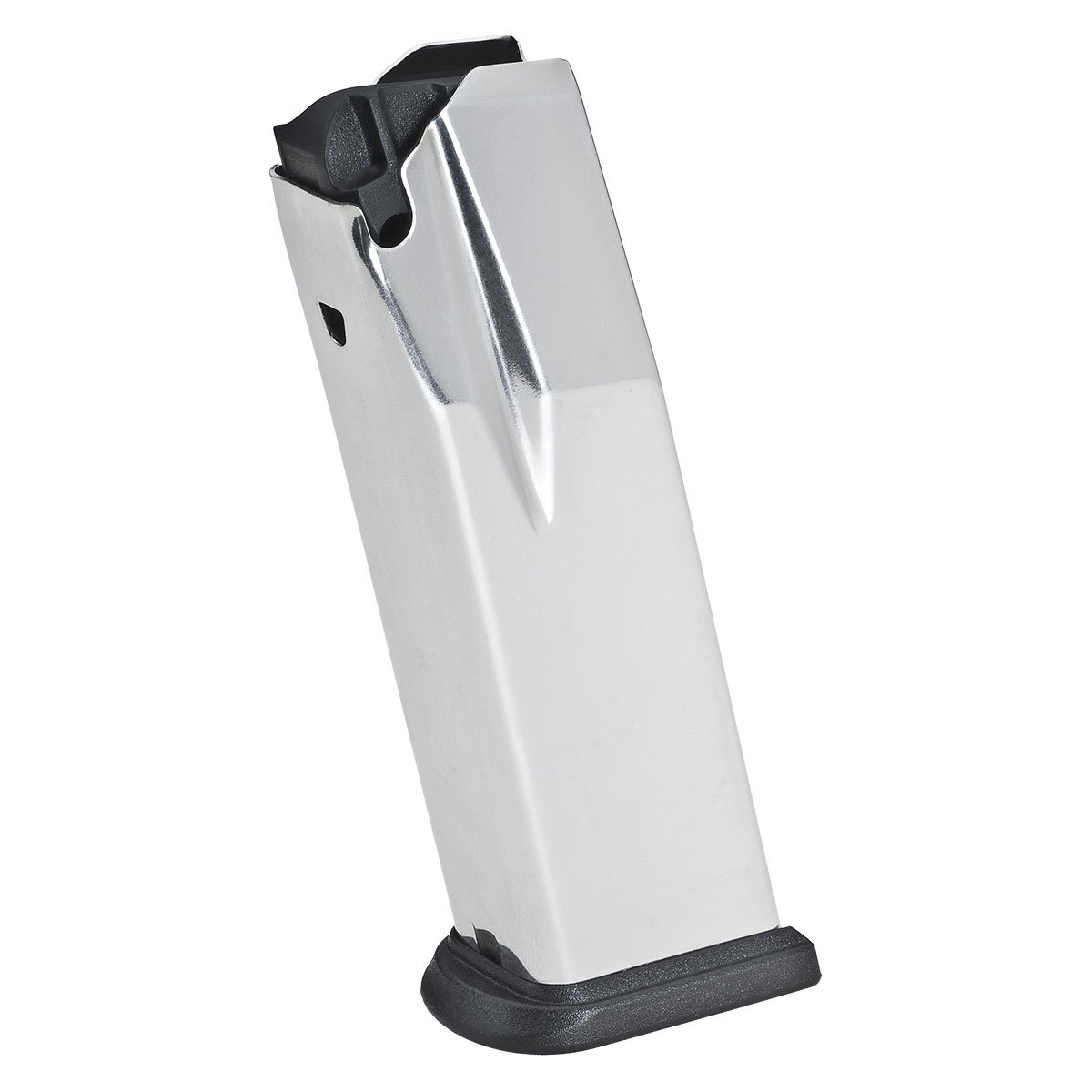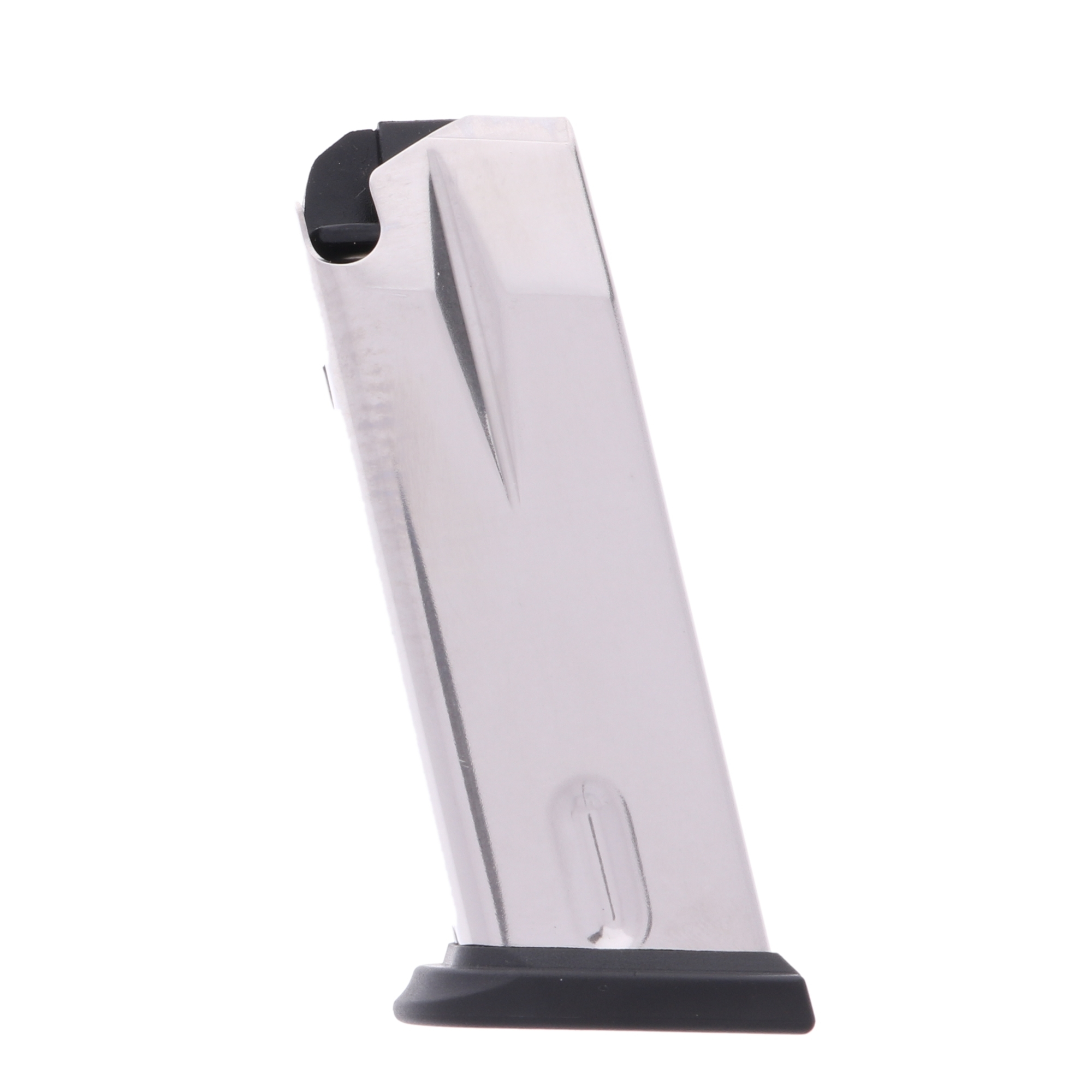[FINISHED] HANDGUN - Hardsurface modeling - Zbrush & Maya - Game Ready asset
Hi Polycounters !
I want to share with you my work in progress in creating a game ready asset.
a Springfield XD mod.2 handgun.
I have almost finished modeling the frame and the magazine is fully modeled, now it's time to tackle the slide and the barrel which are slightly easier and less complicated than those crazy forms on the frame.
Here's some screenshots from Zbrush (this is my first encouter with the program, it is very powerful but very confusing) along with the references i used.
I'm looking for feedback, so any critic is welcome
















I want to share with you my work in progress in creating a game ready asset.
a Springfield XD mod.2 handgun.
I have almost finished modeling the frame and the magazine is fully modeled, now it's time to tackle the slide and the barrel which are slightly easier and less complicated than those crazy forms on the frame.
Here's some screenshots from Zbrush (this is my first encouter with the program, it is very powerful but very confusing) along with the references i used.
I'm looking for feedback, so any critic is welcome

















Replies
Hello everyone ! I wanted to share with you my progress this week.
So the high-poly is almost finished, i have yet to model the trigger, the sights and the small parts.
Any and every feedback is welcome !
Thank you.










I have yet to polish the sharp edges and then i'll tackle the low poly phase
The low poly phase is done - time to tackle the uv mapping and texturing
I have a question though :Would you suggest that i re-model the low and high poly for the slide part or is there a quick fix to do it ?
Because i know that the barrel has the correct proportions since i modeled it using the cartridge as a reference for which i have real world dimensions from the manufacturer - so the slide is the problem because i eye-balled it
i'll pay more attention to use better quality references in the future since i realized fairly late into the process that i needed a better orthographic reference than this one :
Also i've noticed that my orthographic reference wasn't exactly matching with the perspective references even though it's the same gun (maybe different editions/versions , not sure) for example :
Now i have i've spent some time to adjust some details since the last reply and here's the results
- Fixed the front sight proportions
- Re-modeled all of the slide's details except the ejection port (that angular cut i couldn't get right)
- Worked more on the grip edge flow
- Adjusted the magazine base
- Fixed the trigger's width
- Fixed the mag-release scale
In regard to the question you asked, i honestly did not fully understand what you meant but i'll try to answer it anyways :
- To start from the beginning a brief presentation : i'm an archviz artist and modeling, uvs and optimization weren't my concerns, and now i've decided to push my limits in assets' creation for games and it turns out i am illiterate in 3D art up until now haha.
- So i'm following a tutorial from which i observed the artist's workflow using maya and zbrush back and forth picked up certain methods and i familiarized myself with both programs during the last month to say that i'm confortable using them both now (i was a 3ds max user) - But i cant give you a personal reason as to why i did not rely on a polygonal method since i'm a newbie in this field but i'll give you the reason from the tutorial which i agree with :
- Using zbrush live boolean feature is really helpful to visualize complex cuts and sculpting on the model directly, and most importantly it's non destructive, i can't tell you the ammount of trial and error i went through on some parts to reach the result i've got but i was really glad that i didn't have to worry about remodling the whole part - Also zbrush can handle millions of polys without so much of a frame drop which is very helpul in the high poly modeling phase .
-The workflow is like this : i model the main shapes (blocks) in a low poly state in maya at first using ortho reference then i import them in zbrush add dynamic subdivs then for the cuts i model the negatives in maya too and throw them in zbrush and live boolean. Then once finished with the whole gun i apply the boolean operation to get a high poly mesh with all the cuts applied , then dynamesh and smooth all crisp egdes and all the necessary steps for a good baking later on - then i go back to maya and import my high poly mesh and poly-model the low poly based on the HP mesh.
I hope that i provided enough informations to answer your question, if not please ask aways, i'm happy to answer
PS : My end goal in this project is to create a presentable well textured asset that can be imported perfectly fine in game engine (no animation)
Cheers.
Edit
Half the time I confuse myself, let alone others asking obviously non-sensical questions, after the fact
When i bake the normals i've got these problems :
First this is the model baked :
- Here's the whole UV layout
For this part which is the upper surface of the slide i got a weird shape even though i have no seams or hard edges or weird topology
Also i don't understand what's causing this issue in the inner part of the slide :
Second problem comes from the baking depth and the fact that you have a very thin shape there. Try lowering the depth or distance or whatever its called and look for issues in other areas. By lowering the distance a ray travels you might get misses i.e the low poly mesh is too far away in some places from the hp.
That part where it was messy, now it's slick !
Here's some with and without the normal map
Glad i could help and i hope that you have learned something for future projects.
Now lets texture this baby!
Does anyone has a clue as to why is this happening in marmoset and not in substance painter and maya using the same normal map and the same exact mesh ?
MARMOSET VERSION :
MAYA & PAINTER VERSIONS :
Weirdly enough it didn't work with Maya tangent space or any other option available except with Mikk / xNormal
I have an issue with changing the shader type in Substance Painter mid painting, i have created the basic materials for all the sub-meshes of the model (Diffuse, metalness, and roughness for some) and then after exporting the maps to test how it looks in Marmoset i realized that i was working in Metalness/Roughness workflow while Marmoset TB uses a Spec/Gloss workflow. Then two issues presented themselves :
- First the conversion of the gloss map to roughness map do not give the same results and it looks ugly in marmoset like this pictures below
- Second when i change the shader in Painter from Metal/Rough to Spec/Gloss all diffuse and specular information is lost and i get a white model with height information.
I am wondering if anyone knows a solution to this problem, is there a possibility to change Marmoset workflow ? Or am I missing something in Painter after changing the shader, or is my map conversion not correct ? I'm confused
The problem with the roughness map :
MTB Version
PAINTER Version
MTB Version
PAINTER Version
The problem with the shader switching :
All the materials are preserved but do not show on the model in material mode
Polymer and black plastic 50% done , still have to add scratches and dirt here and there
Eventhough coated in Melonite which is used to both strengthen and as a anti-corrosive treatment however during the completion phase is then polished too restore the part's original surface.
Hahahaha yes man i'm aware of which part is which it would be weird if i didn't know which material corresponds to which part of the gun, imagine making the slide plastic it would be a toy gun lol.
Does the frame's texturing look conviencing enough ?
The lower is too rough, should have some more roughness variation also
Thanks for all the people who provided a helpful advice or a critique during the time i was working on it or when i asked.
I think it could be refined even more but it's time for me to focus on a new project. This was a blast, i had a lot of fun and a lot of pain too haha
Full project : https://www.artstation.com/artwork/v2oVVd
Many thanks to EUGENE PETROV for sharing his workflow on making guns for games, please check his course it is very detailed and educative.
Infos :
Tris : 16 120
4k Texture for the whole gun
High poly sculpted in Zbrush
Low poly modeled in Maya
UV mapping done using Headus UVlayout and Rizom UV
Texturing in Substance Painter
Rendering in Marmoset Toolbag